

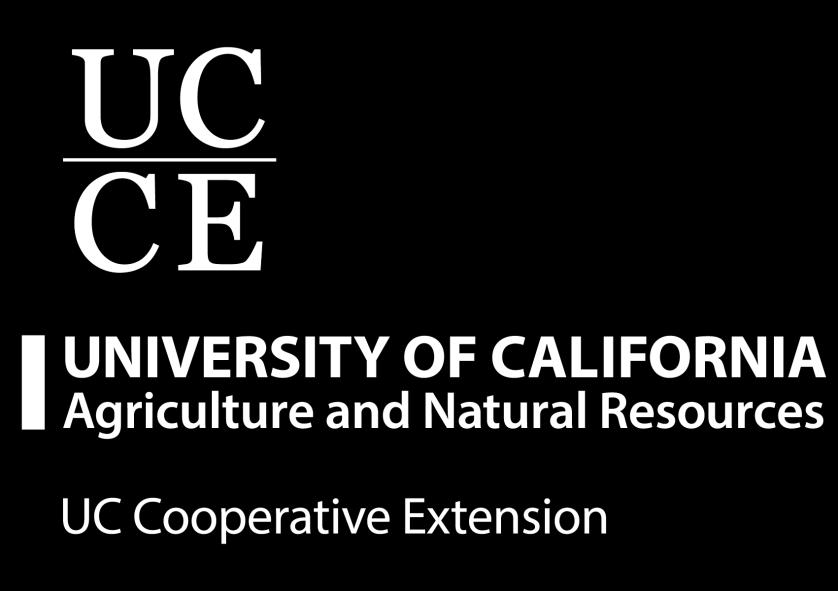
2022 Annual Report UC Cooperative Extension Sutter and Yuba Counties Cooperative Extension Sutter-Yuba Counties ¨ 142A Garden Highway, Yuba City, CA 95991-5512 Office (530) 822-7515 ¨ Fax (530) 673-5368 ¨ http://cesutter.ucanr.edu/
niversity of California Agriculture and Natural Resources (UC ANR) brings the power of UC research in agriculture, natural resources, nutrition and youth development to local communities to improve the lives of all Californians.
Our Cooperative Extension (UCCE) county-based advisors, community education specialists, and campus-based academics work as teams to bring practical, trusted, science-based solutions to our state. We are problem solvers, catalysts, collaborators, educators, and stewards of the land, living in the communities we serve.We are a partnership between Sutter and Yuba Counties and the University of California, who all support our work with funding and resources. We bring science-based research and programming to everyone in the community through a variety of different programs. We are one of the oldest of the 64 Cooperative Extension offices located across California, established in 1918 we turned 104 in 2022!
74 peer-reviewed and audiencerequested publications 500 youth in UC 4-H Youth Development





Program
92 academic-led workshops, field days, and classes with 1,649 participants UC Master Gardener volunteers reached 978 residents $1,113,325 University $479,070 County $750,521 Advisor generated (grants, gifts, other, etc.) (2021 Funding)
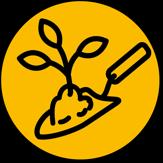
25 news media programs/ mentions

Thank you for your support!
Sutter County Board of Supervisors
Nick Micheli, District 1
Dan Flores, District 2
Mike Ziegenmeyer, District 3
Karm Bains, District 4 Mat Conant, District 5
Yuba County Board of Supervisors
Andy Vasquez, Jr., District 1
Don Blaser, District 2
Seth Fuhrer, District 3 Gary Bradford, District 4 Randy Fletcher, District 5
The University of California prohibits discrimination or harassment of any person in any of its programs or activities. (Complete nondiscrimination policy statement can be found at http://ucanr.org/sites/anrstaff/files/107734.doc). Inquiries regarding the University’s equal employment opportunity policies may be directed to Affirmative Action Contact and Title IX Officer, University of California, Agriculture and Natural Resources, 2801 2nd Street, Davis, CA 95618, (530) 750-1397; titleixdiscrimination@ucanr.edu




170 volunteers donated 14,794 hours public service (estimated value) $497,210
9,777 total educational interactions with the public
U
UCANR builds partnerships based on deep and long-lasting relationships with local, state and federalgovernments, community-based organizations, schools, nonprofits and private industry. Here are the many organizations that UC Cooperative Extension partners with to serve the residents of Sutter and Yuba Counties:
AgSeeds Unlimited
Andros Karperos Elementary School
Barry Elementary School
Bear River Supply PCA’s
Benden Farms
Big Valley Ag PCA’s
Bob Amarel, Jr., Reason Farms
Burchell Nursery, Inc
CALFIRE
California Alfalfa and Forage Research Foundation
California Canning Peach Association
California Crop Improvement Association
California Dry Bean Advisory Board
California Rice Commission
California Rice Experiment Station
California Rice Research Board
California Tomato Research Institute
California Walnut Board
California Wild Rice Advisory Board
Camptonville Elementary School
CDFA - Fertilizer Research and Education Program
CDFA - Healthy Soils Program
Cedar Lane Elementary School
Chamberlain Farms
Colusa County Farm Supply PCA’s Colusa County Resource Conservation District Conant Orchards
Ella Elementary School
Erdman Farms
Furlan Farms
Gilbert Orchards
Golden Gate Hop Ranch
Grow West Supply PCA’s
Gurj Thakar
Healthy YOUba Coalition
Jaw GP
Joe Conant, Grower
Joe Serger, Miki Farms
John Amarel, Reason Farms
Johnson Park Elementary School
Kim Gallagher, Grower
King Avenue Elementary School
Kuldip Atwall
Lincoln Elementary School
Marysville Joint Unified School District
Marysville Rotary
Matt Bozzo, Yuba County Ag Dept
Matt Lagorio, Grow West Miki Farms
Norene Ranches Inc.
Oryza Partnership Park Avenue Elementary School
Park Farming Organics
Pleasant Grove Farms
Richter Bros.
River Garden Farms
Sarb Atwall
Sierra Gold Nurseries
Sohnrey Family Farms
Sutter County Agricultural Department
Sutter County Resource Conservation District
Tahoe National Forest
TS&L Seeds
UC Davis Agricultural Experiment Station
UC Integrated Pest Management Program
UC Weed Research and Information Center
UCCE colleagues
USDA - Agricultural Research Service
USDA - Natural Resource Conservation Service
USDA - Wildlife Services
Wallace Brothers
W. Cover Crops Council-SW Regional Committee
Yuba City Unified School District
Yuba County Agriculture Department
Yuba County Office of Emergency Services
Yuba County School Readiness Program
Yuba County Sheriff’s Department
Yuba River Endowment
Yuba Water Agency
Yuba Watershed Protection and Fire Safe Council
Yuba-Sutter Cattlemen’s Association
Yuba-Sutter Fairgrounds
Yuba-Sutter Farm Bureau
Cover Crop Trials 2022-2025
The UCCE Rice Team was awarded funding from the California Department of Food and Agriculture to test winter cover crops in rice, to determine the effects on subsequent rice yields as well as the ability of the cover crops to capture nitrogen and sequester carbon in the soil. With additional funding from the California Rice Research Board, we are also testing cover crop varieties to determine the best varieties for the rice-growing region. The trials are located throughout the valley and the data will allow us to provide specific variety recommendations based on location.
Weed Management in Rice
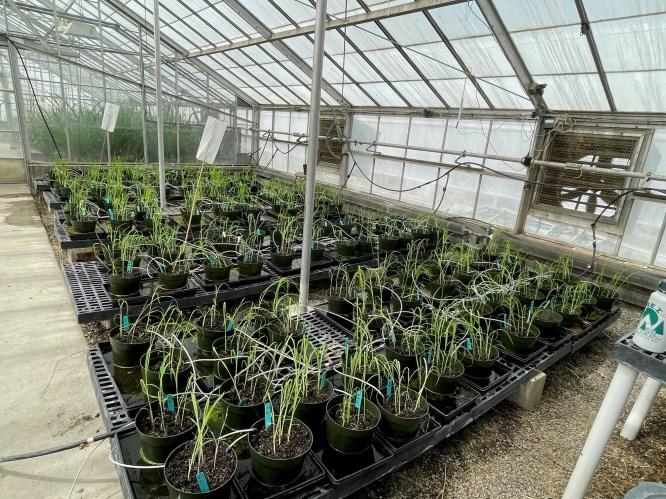
Watergrass continues to be our worst weed in terms of both acres infested, and difficulty with control. In 2020, 64 samples were collected from grower fields across the rice-growing region and screened for herbicide resistance, as well as information to assist with identification. Results were released this year, through several articles which reached more than 2000 growers and Pest Control Advisors (published in CAPCA Advisor, UCCE Rice Newsletter, as well as the UC Weed Blog). Current research in this area includes field trials (testing of new products) with several chemical companies and identification work with the UC Davis Herbarium.
Wild Rice
This year (2022) marked the first year of field testing on the pathway to registering new herbicides for the wild rice industry in California. Funding was provided by the California Wild Rice Advisory Board, as well as the national IR-4 Program. Preliminary data suggests that there are several good candidates, and testing will continue in 2023.
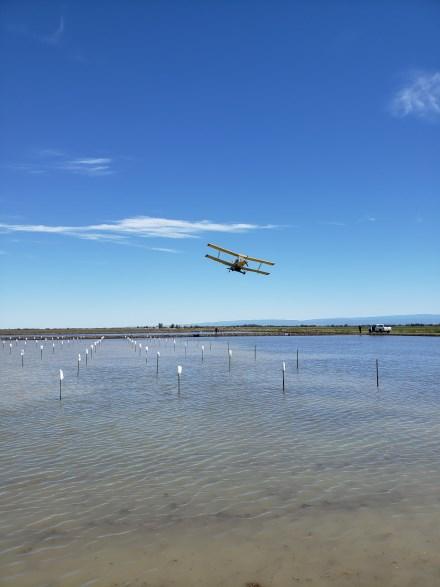
Rice Crop Rotation Tool
The UCCE Rice Team has launched a new decision-support tool, the “Rice Rotation Calculator”, which can be found at https://rice-rotation-calculator.ipm.ucanr.edu/. The tool was created through a partnership between UCCE, UC Davis, and the UC Integrated Pest Management program. It was funded by a grant from the Western IPM Center.
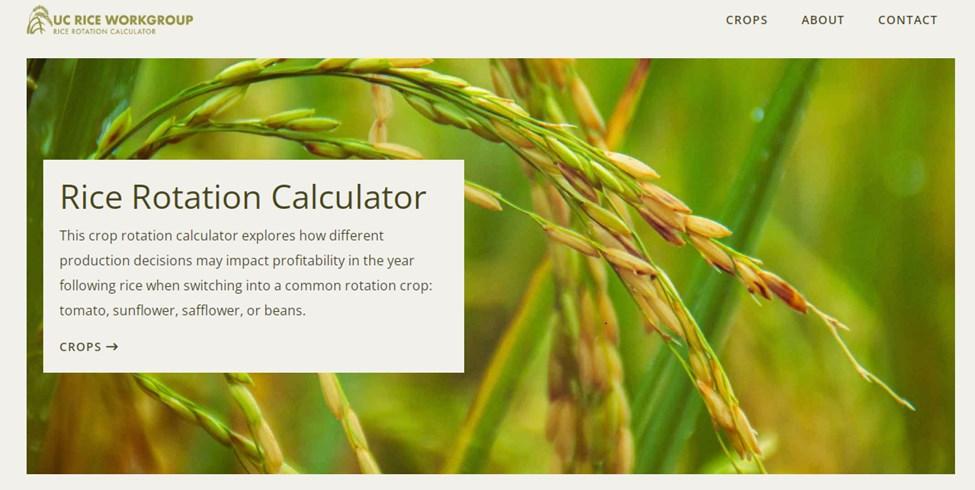
The idea for the calculator came about from a study conducted by UC Davis Graduate Student Sara Rosenberg, where she interviewed growers across the rice-growing region on their crop rotation practices, both growers who did and did not crop rotate. One of the large barriers that came out of the study was the economic uncertainty of switching out of rice, including the cost of switching as well as the overhead costs of a new crop, whether or not a new crop would be profitable, and the difficulty of finding markets. The tool provides the answer to the economic uncertainty question, as well as the overhead and profitability of the new crop.
Tool Overview
The tool allows California rice growers to choose between four rotational options: safflower, sunflower, tomatoes, and dry beans. Growers can input data from their production systems and ranches for rice as well as the rotational crops. There are also default data values (averages) that the tool generates if the growers do not know the values or can not obtain them.




The output generates a graph, which updates as the inputs and values are changed. The graph shows the overall revenue difference between each rotational crop from rice, the cost difference between safflower and rice in the first year of switching out of rice as well as an average rice year, the profit difference between safflower and rice in the first year, and the profit difference on an average rice year. The values are also outlined below the graph, for several cost categories: baseline information (your rice values), the opportunity cost of time learning the new crop and finding markets for the new crop, seed, equipment and implements, straw management, field reconstruction (i.e., levee deconstruction/formation or additional slope), labor, inputs, harvest, irrigation, extra expenses (which includes office expenses and compliance payments), crop loss, and rent.
Acknowledgment
Other contributors to this research: Cameron Pittelkow, Ellen Bruno, Luis Espino, Bruce Linquist, Michelle Leinfelder-Miles, Kassim Al-Khatib, members of the UC IPM rice work group, and the California Rice growers who participated in the research.

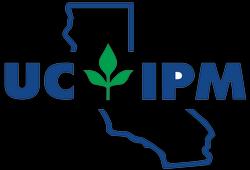
 Whitney Brim-DeForest County Director Rice and Wild Rice Advisor Sutter, Yuba, Placer, Sacramento wbrimdeforest@ucanr.edu
Whitney Brim-DeForest County Director Rice and Wild Rice Advisor Sutter, Yuba, Placer, Sacramento wbrimdeforest@ucanr.edu
Rice and Wild Rice
Training and Mentoring our Local Workforce and College Students
Over the past 5 years, our office has focused on building connections to local higher educational institutions as well as community organizations, to provide opportunities for mentorship and training for adults in our office. We have had the opportunity to work with students and recent alumni from UC Davis, UC Santa Cruz, CSU Monterey Bay, CSU Chico, and in the past year, with work experience trainees from Sutter County One Stop. We are proud to provide mentorship and training for the next generation of leaders in our community and beyond.
Past and current trainees:
• Hannah Lepsch, UC Davis, UCGHI Planetary Health Center of Expertise Summer Fellow
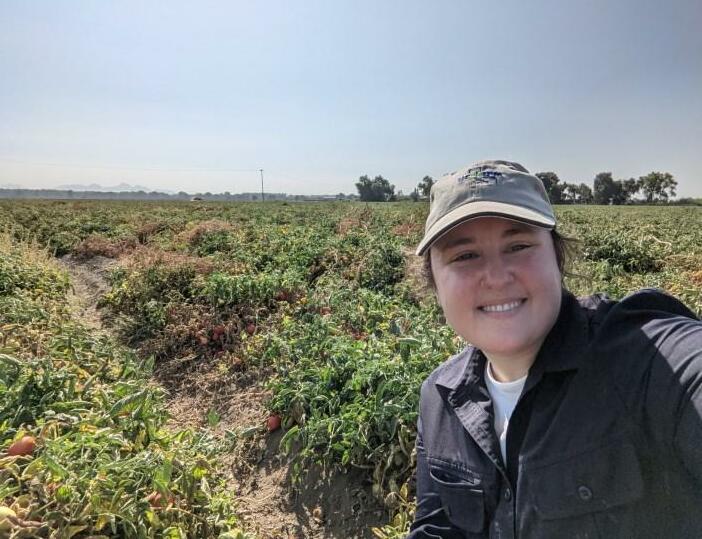
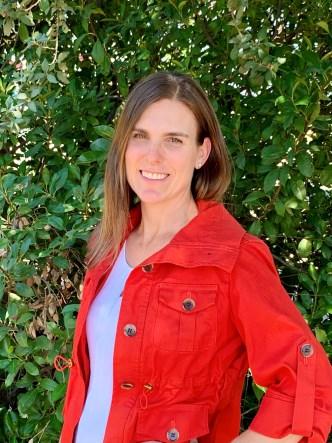
• Isabella McCrory, CSU Monterey, Internship
• Serena Bhaghirath, UC Davis, UCGHI Planetary Health Center of Expertise Summer Fellow and MPH Practicum
• Sara Rosenberg, UC Davis, Extension Certificate Experience
• Helaine Berris, UC Davis, UCGHI Planetary Health Center of Expertise Summer Fellow
• Elijah Liedeker, UC Santa Cruz, UCGHI Planetary Health Center of Expertise Summer Fellow
• Rory O’Toole, UC Davis, UCGHI Planetary Health Center of Expertise Summer Fellow
• Kayla Minehan, CSU Chico, Research Experience Internship
• Jayla Pollard, Sutter County One Stop Work Experience Program
• Naser Majroh, Sutter County One Stop Work Experience Program
Betsy Karle Dairy Advisor
bmkarle@ucanr.edu
The dairy program has focused on antimicrobial stewardship, animal health and well-being, and environmental stewardship in 2022. Research activities include building communities of practice on dairies, improving on-farm milk quality, managing arthropod pests, adoption of manure management practices, and decreasing antibiotic resistance.
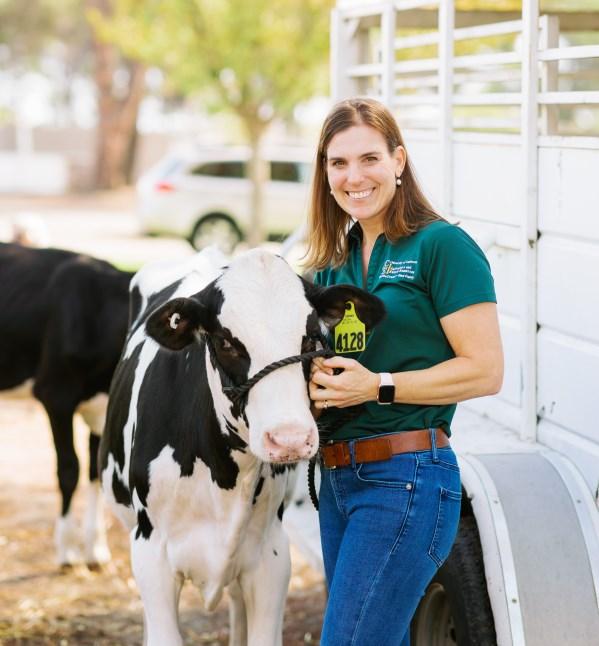
Results from studies were presented at the Golden State Dairy Management Conference, World Ag Expo, and in various industry publications.
Contributions to scholarly literature include five publications discussing effects of antibiotic treatment on cow’s microbiota, effectiveness of treatments and cow health, implementation of antibiotic use legislation, organic dairy disease management, and antibiotic resistance associated with fresh cow diseases.








Vegetable Crops
The Vegetable Crops program visited over 22 processing tomato fields and 5 cucurbit (cucumber, squash, melon) fields to diagnose pest issues during the 2022 season. On farm research trials were also continued from 2021 to determine processing tomato variety tolerance and susceptibility to the emerging vine decline/crown rot disease, Fusarium falciforme. In addition to soilborne pathogen field evaluations, we also trapped for darkling beetles in Spring 2022 in organic processing tomato fields Darkling beetles are early season pests of tomatoes that feed on plant stems at the soil line causing girdling, which can lead to plant death. These research projects were funded by the California Tomato Research Institute and done in collaboration with UC Davis, growers, and industry partners.
Also, after an outbreak of beet curly top virus (BCTV) in our region in 2021 that affected both tomato and cucurbit growers, the virus was prevalent again in 2022, though not at the same damage levels as 2021. Historically, this disease, vectored by the beet leafhopper, was not a concern in Northern CA but has become a high priority for growers in the region. The Vegetable Crops program continued evaluating insecticide efficacy against cucumber beetles (#1 pest of muskmelons in the Sacramento Valley) in honeydew production with funding from the California Melon Research Board and collaboration with UC Davis and also continued evaluating compost application to tomato fields as part of a Healthy Soils Demonstration Project.
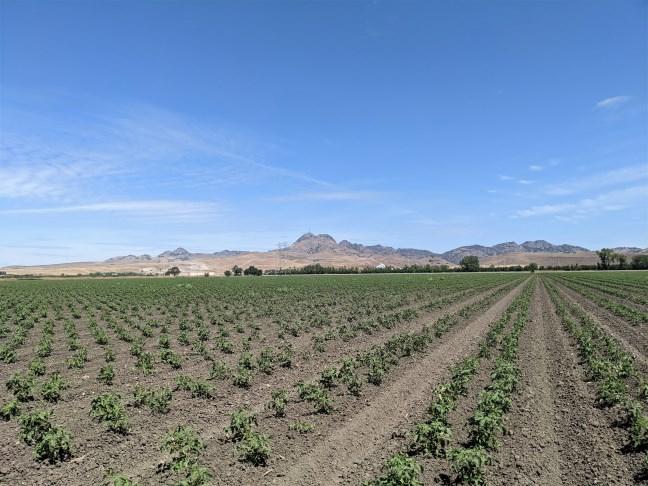
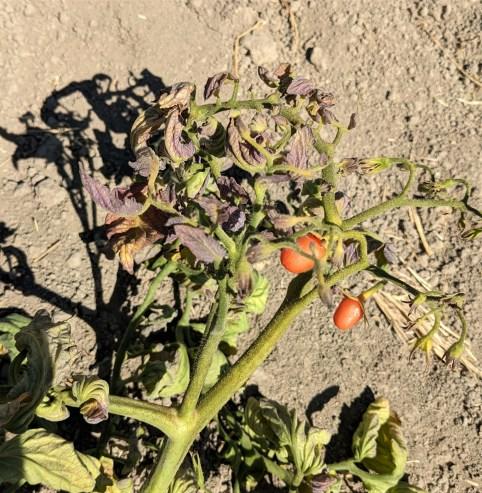 Northern Sacramento Valley
Northern Sacramento Valley
Dairy
Amber Vinchesi-Vahl
Vegetable Crops Advisor Sutter, Yuba, Colusa
acvinchesi@ucanr.edu
Tree Crops Prune Research
Janine Hasey Emeritus Tree Crops Advisor jkhasey@ucanr.edu
Rising production costs and damaging pests continue to reduce prune growers’ income. To help prune growers stay competitive in the world market, Franz Niederholzer continues to work with UC researchers and other UCCE advisors and staff in the Sacramento Valley on four key projects to improve prune farming practices, reduce costs and manage damaging pests.
As a farm advisor emeritus, Janine Hasey continues to contribute her expertise as follows:
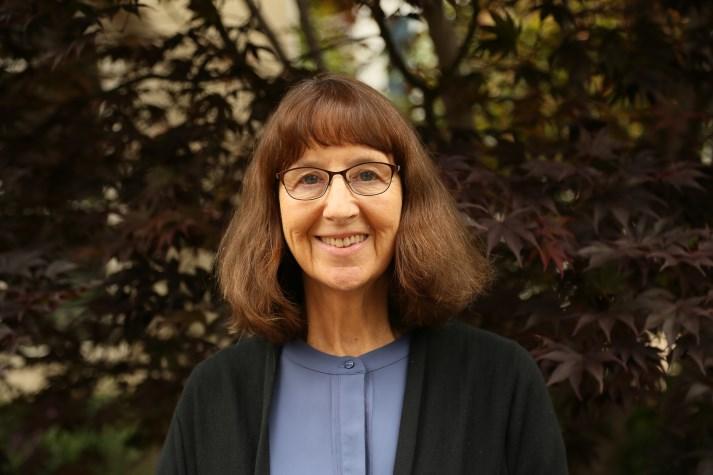
• Contributing to the regional quarterly Sacramento Valley Walnut newsletter which is distributed to local walnut growers and industry.
• Answering walnut and peach farm calls and advising/ assisting on research projects including local walnut variety selection blocks, no prune/no heading walnut training systems, and on whole walnut orchard recycling.






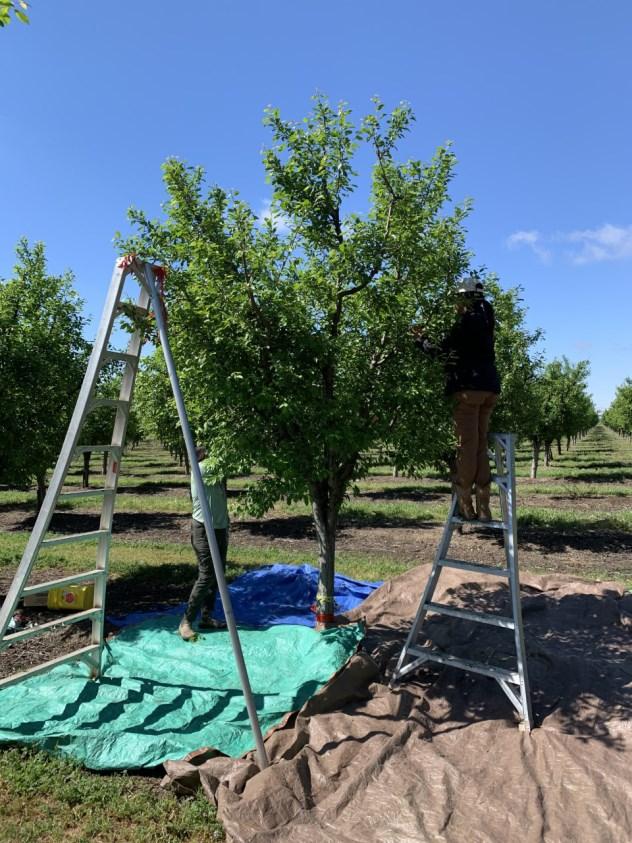


• Updating the 2018 walnut cost study and writing and editing chapters for the Walnut Production Manual revision and other publications.
• Serving on the CA Walnut Board Production Research Advisory Council and as the UC ANR liaison with the CA Cling Peach Board advising on research proposals.
• As an independent contractor with the USDA-ARS, Janine is the statewide clonal walnut rootstock field trial coordinator. These trials for field testing new disease resistant genotypes are funded by a federal Specialty Crop Research Initiative grant through NIFA and the California Walnut Board. Field meetings were held in June at four ongoing statewide rootstock trials with these new genotypes. The meeting in Sutter County also included demonstrations on scheduling irrigations using a pressure chamber. She took final yield data at the three local rootstock trials and is expecting to publish results in 2023. Five more rootstock trials with newer disease resistant genotypes were planted in 2022 including one in Sutter County. These were coordinated with other advisors, researchers, and growers.
• Prune thinning timing trial – How does the timing of fruit thinning impact fruit growth through the season and the final fruit size at harvest? When is it too late to thin prunes?
• Bloom weather and crop set – Bad weather at bloom (too hot or too cold) can eliminate commercial prune crops. Franz has led an effort to develop a model to predict fruit set based on daily temperatures during bloom using almost twenty years of data from prune orchards up and down the state, but especially Sutter County. Now, with a model developed, Franz and other Advisors are using current weather to double check the model.
• Mechanical hedging of prunes - Hand pruning is the major expense in prune production, costing growers up to $1000/acre. Mechanical hedging is a tool that growers are starting to use to supplement or eliminate hand pruning. Franz is part of a team looking at mechanical hedging timings and practices in a commercial orchard in Tehama County.
• Bark and wood rot diseases in prunes - Cytospora canker kills the bark of prune trees and, if not treated, the entire tree. Infections are caused by wind- spores from already infected tissue. Phellinus wood rot eats out the strong core of prune trees, turning them brittle and breakable under stress at harvest and/or windstorms. Projects by UC Davis researchers, supported by Franz and other Farm Advisors are underway to learn managing these damaging disease pests.
Results from this work are delivered to growers and PCAs through quarterly newsletters, annual grower meetings, blog posts, webinars, podcasts, phone calls and face-to-face meetings in the field. The newsletter articles have recently been picked up by the CA Prune Board who push this information to all prune growers, not just those who subscribe to the UCCE newsletter.
Franz Niederholzer Orchard Crops Advisor Sutter, Yuba, Colusa
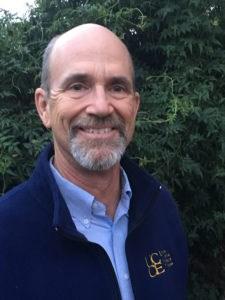
fjniederholzer@ucanr.edu
Livestock and Natural Resources
Forestry and Natural Resources




Most commercial livestock production in Sutter and Yuba Counties is rangeland-based. These beef cattle, sheep, and goat operations generate significant economic activity while managing extensive landscapes. UCCE provides livestock producers, land managers, and organizations with research-based information on natural resource management, livestock production systems, and agricultural business viability.
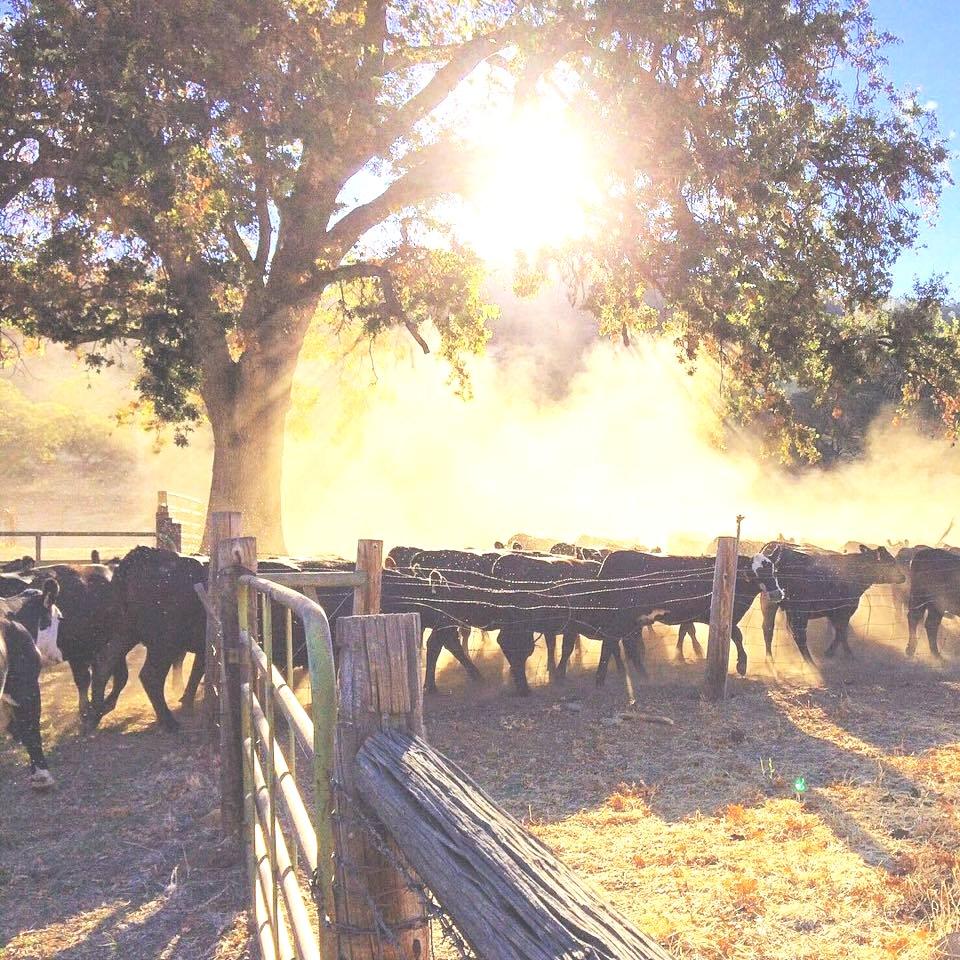
Forests and woodland encompass 48% of acreage in Yuba County and supports major tributaries of the Sacramento River and face unprecedented mortality from drought, bark beetle and wildfire. To ensure the persistence of our ecosystems and their residents, UCCE works with private forest landowners, professional forest practitioners, local agencies, and rural householders to tackle major issues of concern.
Workforce shortages represent a significant barrier to increasing the resiliency of local forests. To improve local capacity, we provided targeted forest stewardship, home hardening and GIS trainings to landowners and resource professionals. We also expanded our career mentorship program to help collegiate forestry students work with local professionals.
In 2021-22, our extension activities focused on providing training for new and experienced livestock producers on grazing management, animal husbandry, protecting livestock from predators, and planning for wildfire and other emergencies. Working with local fire and law enforcement officials, we have developed the first multi-county program to provide training to producers to access and care for their livestock during an emergency. We also developed management tools to help ranchers plan for and adapt to drought conditions. Finally, we have worked with a number of local businesses to develop or expand targeted grazing services designed to help our communities reduce fuel loads and manage invasive weeds while improving the economic sustainability of these livestock businesses.

Our locally-focused research efforts are also focused on the impacts of drought, managing livestock-predator conflict, and assessing the value of grazing as a fuels reduction tool. We completed a 2-year study of the costs and benefits of ranch-level drought mitigation strategies at the UC Sierra Foothill Research and Extension Center in Browns Valley. We are also part of a statewide network of advisors and specialists who are developing new forage production forecasting tools that will help ranchers be better prepared for short- and long-term drought.
Developing career pathways for future generations of natural resource managers is also critical to sustaining our rural communities. This year, we worked with several youthfocused education efforts including the Forestry Institute for Teachers (FIT) K-12 educator training and California Project Learning Tree program (PLT). FIT prepares California’s K-12 teachers with resource expertise to effectively teach about forest ecology, resource management, and natural resource careers in their classrooms. The weeklong program applies science-based curricula compatible with the Next Generation Science Standards to explore many subject areas including environmental science, physical science, social science, biology, forestry, and history.
Changing markets and a growing emphasis on small diameter fuels reduction necessitate alternative silvicultural practices to ensure that forest management remains ecologically and economically sustainable. We are currently collaborating with various universities, state and federal agencies on the Adaptive Management Experiment. Initial treatments at the Grouse Ridge Field Station have been completed including establishment of a seedling provenance study.
Ricky Satomi Forestry and Natural Resources Advisor
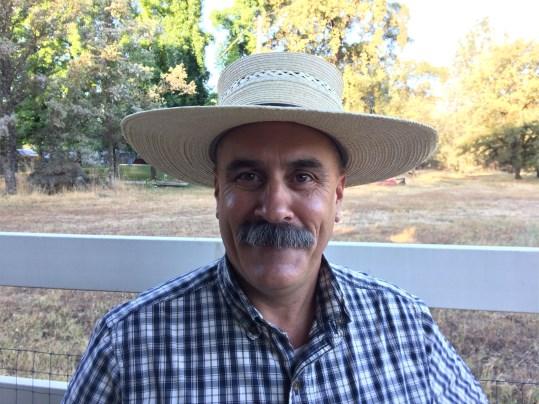
 Sutter, Yuba, Butte, Nevada rpsatomi@ucanr.edu
Dan Macon
Livestock and Natural Resources Advisor
Sutter, Yuba, Placer, Nevada dmacon@ucanr.edu
Sutter, Yuba, Butte, Nevada rpsatomi@ucanr.edu
Dan Macon
Livestock and Natural Resources Advisor
Sutter, Yuba, Placer, Nevada dmacon@ucanr.edu
Cover Crop Management and Soil Health Agronomic Crops and Nutrient Management
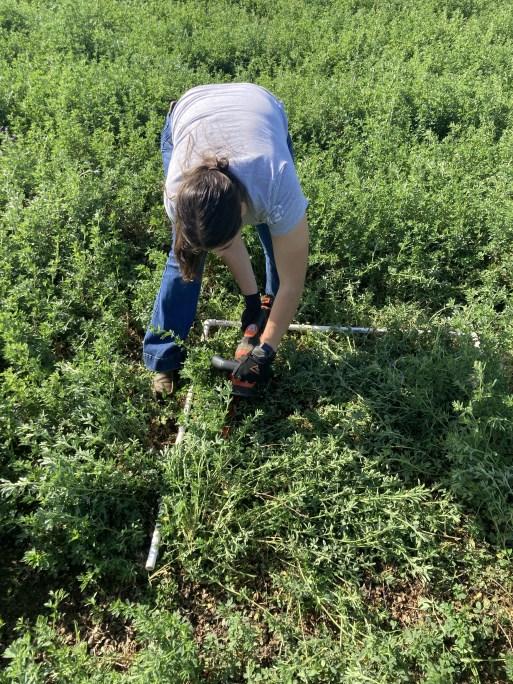
Agronomy Advisor Sarah Light continues to work in collaboration with the Colusa Resource Conservation District and the Western Cover Crops Council on cover crop management in the region. In the past year, Sarah organized both a winter and summer cover crop field day in the region as well as led the first ever daylong tour on cover crop management in the Sacramento Valley. The tour was cohosted by the Western Cover Crops CouncilSouthwestern Regional Committee and UC Cooperative Extension. In addition, Sarah has produced and disseminated information relevant to regional growers who want to practice cover crops in an annual rotation. These resources include the publication of “Estimated Costs for a Winter Cover Crop in an Annual Crop Rotation” with the UC Davis Department of Agricultural and Resource Economics; the release of several cover crop species evaluations, which can be found under project summaries on Sarah’s webpage; and a summary of observations around winter weed management with cover crops from several years of projects that is in the July 2022 Sacramento Valley Field Crops Newsletter. Sarah Light and Liz Harper, Executive Director of the Colusa RCD, received the Conservation Education Award from the Soil and Water Conservation Society (CA and NV chapter) in January 2022.
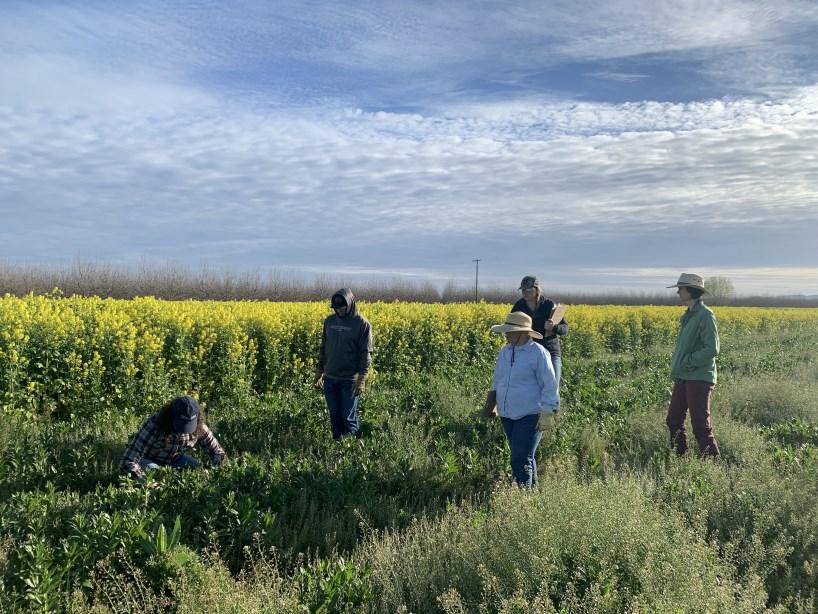
Agronomy Advisor Sarah Light is collaborating with Farm Advisor Rachael Long from Yolo County on a project evaluating the application of almond shells to established alfalfa fields. The project evaluates the effect of almond shells on alfalfa stand productivity, weed pressure, and soil health. They are in year two of the project. In addition, Sarah continues to collaborate with the UC Small Grains team on optimizing nitrogen application in wheat. Information about this study, including case studies from the Sacramento Valley, can be found on the UC Small Grains Page and on the UCCE Sutter -Yuba Field Crops website. In addition, Sarah collaborates with Nutrient Management Specialist Daniel Geisseler and other UC Cooperative Extension agronomists to understand nitrogen availability to field crops from residual organic nitrogen in soil. A summary of findings so far were published in the July 2022 edition of the Sacramento Valley Field Crops Newsletter.
selight@ucanr.edu
IPM Program







Sutter,
sgyawaly@ucanr.edu
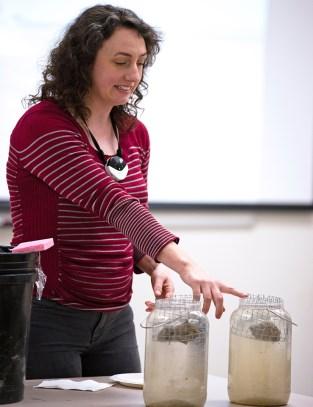
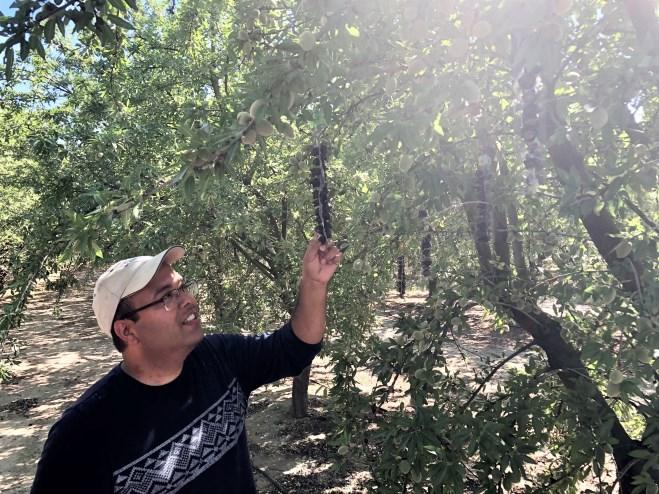
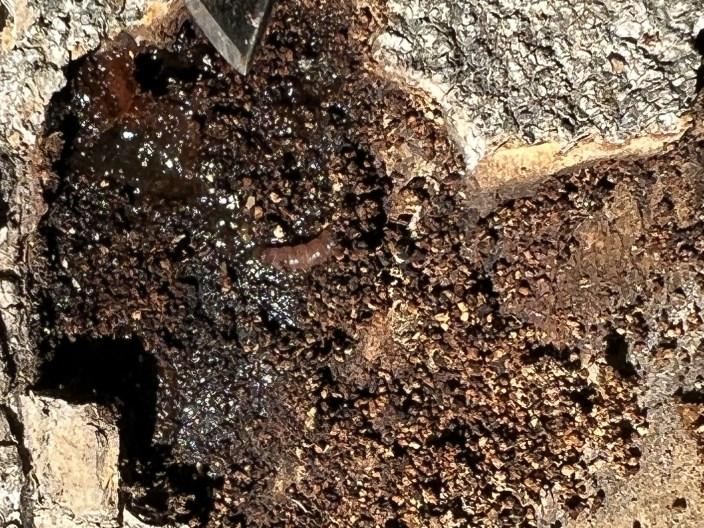
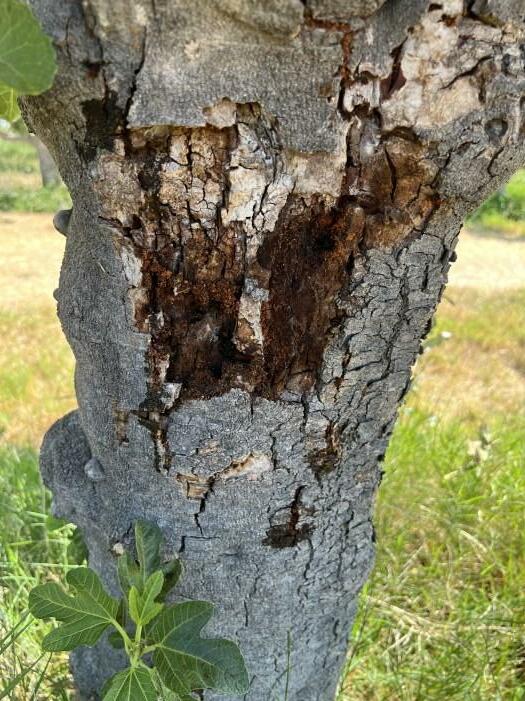
The area-integrated pest management (IPM) advisor/program is responsible for developing and implementing an innovative extension education and applied pest management research program in the Sacramento Valley. During 2022, as a part of his program need assessment process, Gyawaly has been meeting and talking with growers and other stakeholders to discuss pest issues in the region. He plans to develop an IPM research and education program based on the information collected during this period. However, he has been reaching out to growers by providing them with personal consultations and publishing IPM information in newsletters.
 Sarah Light Agronomy Advisor Sutter, Yuba, Colusa
Sudan Gyawaly IPM Advisor
Yuba, Colusa, Glenn, Tehama, Butte
Sarah Light Agronomy Advisor Sutter, Yuba, Colusa
Sudan Gyawaly IPM Advisor
Yuba, Colusa, Glenn, Tehama, Butte
Master Gardener Program
The Master Gardeners of Sutter-Yuba Counties are a group of 48 trained, dedicated volunteers whose primary responsibility is disseminating horticultural information to home gardeners in the community. This year we welcomed ten newly certified Master Gardeners into our program. Emeritus Advisor Janine Hasey continued to be the Master Gardener Advisor as a volunteer through September 1st. Johnny Yang joined the program as a Master Gardener Coordinator beginning in May.
Our Master Gardener volunteers participated in the following programs/activities/workshops to provide information on horticultural and pest management information, including water-wise gardening and composting for the Sutter-Yuba community:
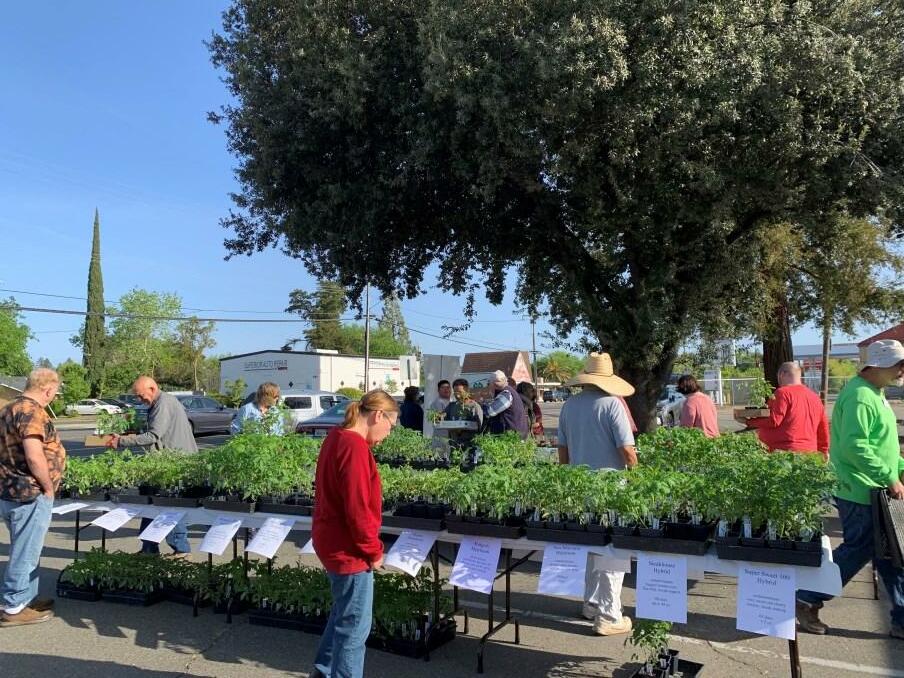
• Office help desk for answering gardening questions
• Farmer’s Market in Yuba City
• The Yuba City Home, Garden and Recreation Show
• Tomato plant sale
• Farm Day
• 93Q Public Radio Show
• Yuba Environmental Science Charter Academy school gardening





• 2022 Yuba County Be Prepared Fair on fire safety and defensible space information
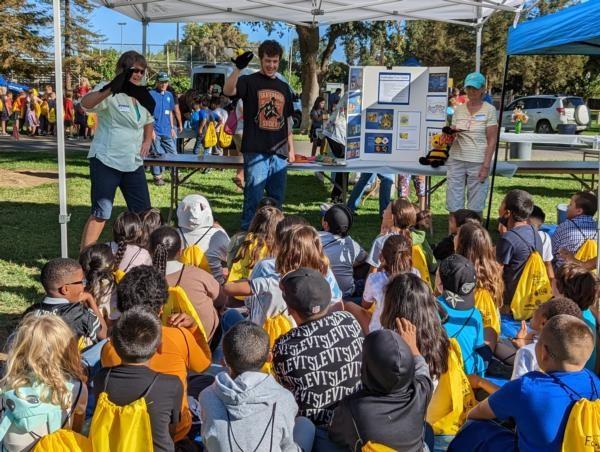
• Blue Stone Nutrition Fair in Marysville
• Renovating the Learning Garden in preparation for schoolaged children, and public demonstration workshops
The Master Gardener program help desk is open to Sutter and Yuba Counties home gardeners on Tuesdays 9:00 a.m. - noon and Thursdays 1:00 - 4:00 p.m. If you have a gardening question or problem, give us a call or drop a sample off at our office for identification.
Thank you Janine Hasey!
Janine Hasey retired in 2019 as Tree Crops Advisor and graciously continued to advise the Master Gardener program.
Janine Hasey founded the Sutter-Yuba Master Gardeners in 1984, one of the first programs in the state of California. Over her 38year tenure with the program, the MGs volunteered over 75,000 hours in the community.

We want to personally thank Janine for her leadership, her extensive horticultural knowledge, the huge amount of time and effort she has put in over the years, as well as the relationships she has built, without which, this program wouldn’t be what it is.
Master Food Preserver Program
We are so excited to announce our inaugural class for the University of California Master Food Preserver (MFP) Program. We swore in two founding volunteers, Kathy Sheesley and Julie Bowen, on July 12, 2022 and Johnny Yang will serve as the Program Coordinator.
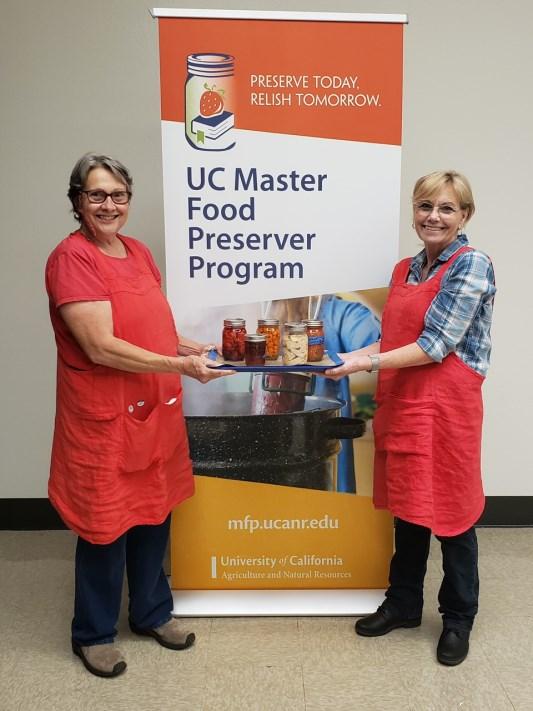
The MFP Program extends UC research-based information about home food safety and preservation to the public. They will be offering classes and workshops to the public in the coming year.
The UC Master Food Preserver Program’s mission is to keep Californians safe and well as they use culturally appropriate, research-based practices to safely preserve food in the home, reducing food waste, increasing food security, and providing engaging ways for Californians to explore healthy food.
Advice to Grow By….Ask Us!
4-H Youth Development Program
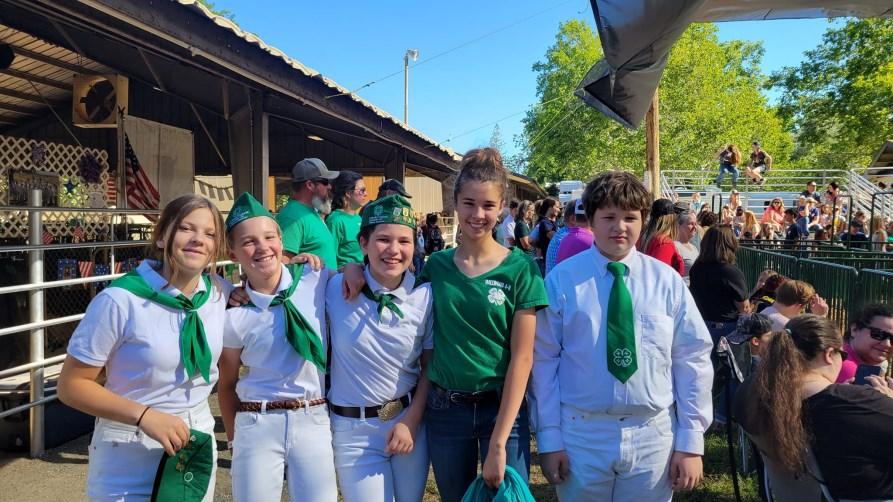

For the past 100 years, 4-H Youth Development Program (YDP) has been a national program. The national 4-H program serves more than 6 million youth members that reside in diverse community contexts in nearly every U.S. county. The 4-H YDP in Sutter and Yuba counties offers an array of developmental contexts that allow youth to find a place of belonging, develop healthy relationships, and engage in exciting learning opportunities. The purpose of 4-H YDP is to empower youth to find their "spark" so they can thrive socially, emotionally, and cognitively.


The Sutter-Yuba 4-H Youth Development Program delivered their annual 4H Community Club training event which provided youth members with leadership skills. The 4-H Club Officers Training focused on teaching parliamentary procedures, teamwork and how to run a 4-H club meeting to help build a sense of belonging amongst 4-H youth. Yuba City High School Future Farmers of America (FFA) students led a session on parliamentary procedures and conducting a formal business meeting. They then held a mock 4-H meeting to give the officers a change to practice what they learned.
The Sutter-Yuba 4-H hosted a Color Me Green 5K in Browns Valley, CA in June 2022. The Color Me Green 5K Run/Walk is a five-kilometer run designed to encourage youth and community members to increase their physical activity while also having fun. During the run, participants are showered with colored dye as they pass through each marker point. This run was a great opportunity for the community to come tother and celebrate healthy living. The California 4-H Healthy Living programs are developed and conducted by the University of California Agriculture and Natural Resources, and seek to address national issues including nutrition, physical fitness, substance abuse, safety, and social and emotional wellness.
CalFresh Healthy Living
O


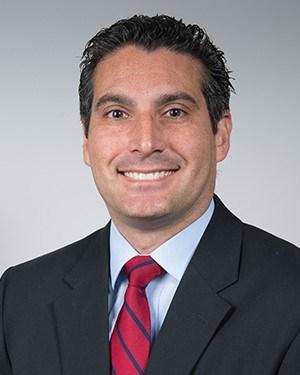






ver 30 YCUSD Program Coordinators were trained to use the Power Play curriculum and 422 kindergarten through fifth grade students were reached through the YCUSD Culinary Week Summer Enrichment Program. The students rotated through the recipe demonstration station and then went into their respective classroom to recreate the recipe as a team. CFHL, UCCE Butte Cluster provided all of the ingredients for each of the five different recipes - and all the cooking equipment needed - for each Summer Program Coordinator (Extender). Every student also received a copy of the daily recipe to take home to their family. Many students expressed that they had created one of the recipes at home with their family. One student proudly remarked “I made the fruit roll with my brother and my mom last night!”. A Summer Program Coordinator said of the Culinary Week Summer Program, “It got us moving before culinary class which meant that the kids were much more focused on the cooking and were able to exert their energy onto activities that related to cooking class and culinary week.”
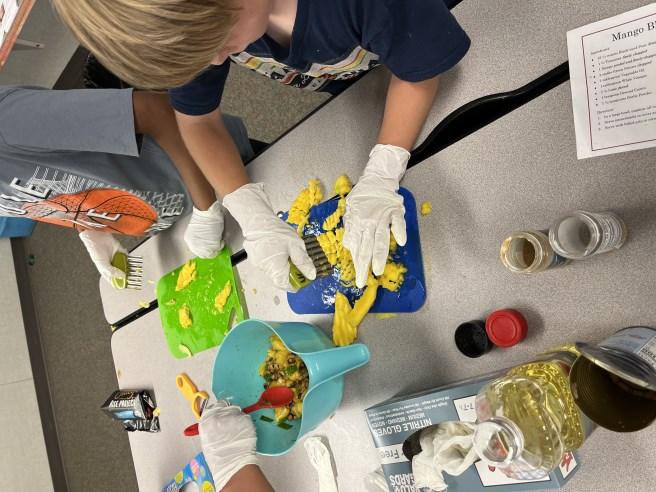

The 4-H Youth Development Program, partnered with the CFHL,UCCE Program, to provide 4-H Youth Experiences in Science (YES) activities with the Kitchen Science to add to their summer enrichment program. Along with the recipe demonstrations kids were also given the opportunity to use their five senses and observe Color Changes, Feel of Dough, Smelling Game and takehome Bread in a Bag. The 4 kits were rotated to all five summer school sites. The sites coordinators said they founds these activities fun and engaging.
The YCUSD Summer Enrichment Program has expressed that they plan to partner with CFHL, UCCE Butte Cluster team to enhance their program for years to come.
Melissa Ussery Nutrition Education Supervisor
melvang@ucanr.edu
Matthew Rodriguez 4-H Youth Development Advisor Sutter, Yuba, Placer, Nevada mrro@ucanr.edu
New 4-H Youth Development Advisor



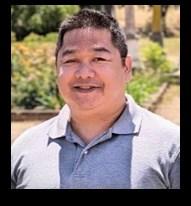
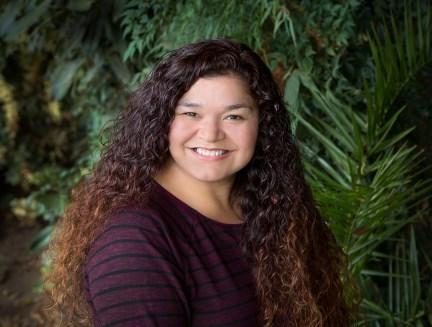
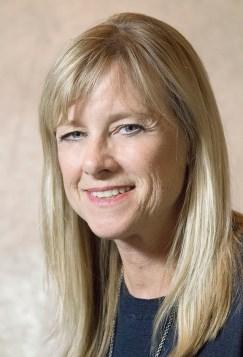
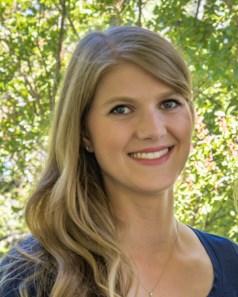
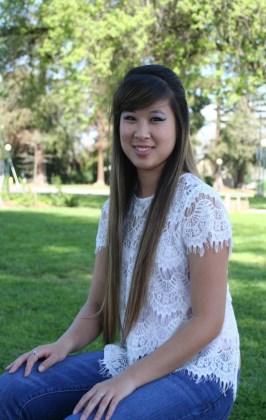

Matthew Rodriguez joined UCCE Sutter-Yuba on September 6, 2022, as a 4-H Youth Development Advisor in Placer, Nevada, Sutter, and Yuba counties. He earned his PhD from the University of Maryland's School of Public Health in the Department of Family Science. As a family scientist, Rodriguez specializes in father-child involvement in underrepresented families. He also provides expertise in 4-H positive youth development and volunteer engagement. In his doctoral studies, Rodriguez supported two USDA NIFA-funded research initiatives to support positive youth development in Latinx communities. Rodriguez is currently getting familiar with 4-H staff, volunteers, and programs to understand the communities to which he serves. In the coming months, Matt will begin a community needs assessment to gather feedback from the 4-H community. He will also continue his research and writing in regarding to youth development and volunteer engagement.

Developing Gardening, Agriculture and Nutrition Programs for Sutter County Youth: A Partnership with The Center at Sierra Health Foundation
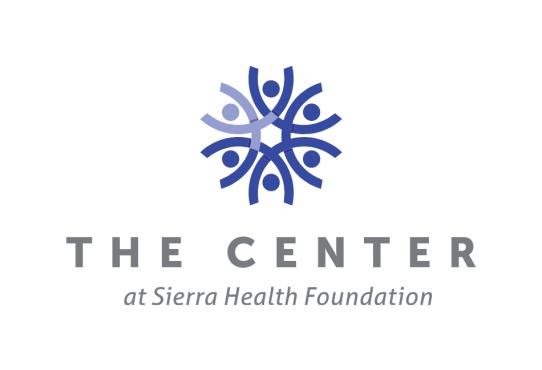

We are excited to announce the receipt of a grant to our University of California Cooperative Extension (UCCE) Sutter-Yuba office to fund in-school programming for the 2022-2023 school year in Sutter County, as well as a new Summer Day camp to be held in Yuba City in July 2023. The grant is funded through The Center at Sierra Health Foundation, a non-profit in Sacramento County. The purpose of the grant is to advance equity in education through expanded learning programs for youth in Sutter County. The grant focuses on increasing youth’s knowledge of agriculture, food literacy, and science, technology, engineering, and mathematics (STEM) to build self-confidence and empower young people to be leaders in the community. Due to the specificity of this grant and its focus on Sutter County, we will use this year to build partnerships as well as develop resources, including school gardens and supply kits to accompany our curriculum that we will provide to both counties in 2023-2024. The Summer Day camp will be open to youth from both counties.
The program is a partnership between three of our UCCE programs: 4-H Youth Development, Master Gardeners, and CalFresh Healthy Living. Our staff leading the program are Whitney BrimDeForest (County Director), Nicole Marshall-Wheeler (4-H Advisor), Dr. Matthew Rodriguez (4-H Advisor), Rene McCrory (4-H Secretary), Melissa Ussery (CalFresh Supervisor), Jona Pressman (CalFresh Manager) and Johnny Yang (Master Gardener Program Coordinator). We are also hiring numerous other staff to assist with the program, including several Student Assistants (currently enrolled in college or university) to mentor through the course of the program, and community members who will assist with the daycamp.
The in-school programming will focus on WaterWizards, Embryology, Cooking Academy, and Twigs School Garden curriculum, and we will also assist schools in building and maintaining gardens in the spring of 2023. 4-H Water Wizards teaches water education with hands-on activities designed not only to educate elementary school students about water and its importance, but engage young learners as scientists themselves. 4-H Embryology teaches students about the basics principles of animal reproduction and the process of raising living things. Cooking Academy aims to inspire and create action in elementary school age “chefs” by allowing them to engage actively with food, practice basic culinary techniques, and complete and eat healthy recipes from start to finish with guided supervision. The program aims to empower “chefs” to cook and eat healthy foods at home, thereby inspiring their friends and family members to do the same. Twigs School Garden curriculum builds a source of pride and accomplishment to all involved when continual commitment yields a beautiful and bountiful harvest.
The Summer Day camp will take place in July 2023, and will be open to the public to enroll. More information will be coming soon. The summer camp will be an opportunity for youth to learn about science and agriculture and experience field trips to local wildlife areas, as well as agricultural production, processing, and milling facilities.
Melissa Ussery Nutrition Education Supervisor Rene McCrory 4-H Secretary Johnny Yang Master Gardener Coordinator
Jona Pressman Nutrition Education Manager
Nicole Marshall-Wheeler 4-H Youth Development Advisor
Matthew Rodriguez 4-H Youth Development Advisor
Whitney Brim-DeForest Advisor
UCCE Advisors

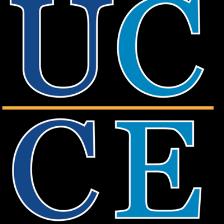
Whitney Brim-DeForest, County Director and Area Rice Advisor
Sarah Light, Area Agronomy Advisor
Ricky Satomi, Forestry/Fire Science and Natural Resources Advisor
Janine Hasey, Emeritus Tree Crops and Master Gardener Advisor
Franz Niederholzer, Orchard Systems Advisor
Amber Vinchesi-Vahl, Area Vegetable Crops Advisor
Matthew Rodriguez, 4-H Youth Development Advisor

Dan Macon, Livestock and Natural Resources Advisor
Betsy Karle, Dairy Advisor
Sudan Gyawaly, IPM Advisor
UCCE Staff
Melissa Ussery, Nutrition Education Supervisor
Taiyu Guan, Assistant Specialist
Troy Clark, Jr. Specialist
Marco Giron, Jr. Specialist
Connie Baez Vega, Jr. Specialist
Kayla Minehan, Student Assistant II
County Staff
Michele Searcy, Executive Secretary/Office Manager
Rene McCrory, 4-H Secretary/Office Assistant
Johnny Yang, Master Gardener Coordinator

Kenia Estrada, Office Assistant-Extra Help
2022 Interns
Angelita Cisneros-Aguilar Naser Majroh
Jayla Pollard
Taylor Richardson Amelia Zepeda
Cooperative Extension Sutter-Yuba Counties ¨ 142A Garden Highway, Yuba City, CA 95991-5512 Office (530) 822-7515 ¨ Fax (530) 673-5368 ¨ http://cesutter.ucanr.edu/

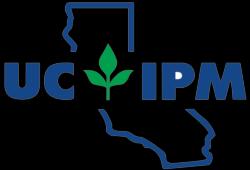
























 Whitney Brim-DeForest County Director Rice and Wild Rice Advisor Sutter, Yuba, Placer, Sacramento wbrimdeforest@ucanr.edu
Whitney Brim-DeForest County Director Rice and Wild Rice Advisor Sutter, Yuba, Placer, Sacramento wbrimdeforest@ucanr.edu










 Northern Sacramento Valley
Northern Sacramento Valley














 Sutter, Yuba, Butte, Nevada rpsatomi@ucanr.edu
Dan Macon
Livestock and Natural Resources Advisor
Sutter, Yuba, Placer, Nevada dmacon@ucanr.edu
Sutter, Yuba, Butte, Nevada rpsatomi@ucanr.edu
Dan Macon
Livestock and Natural Resources Advisor
Sutter, Yuba, Placer, Nevada dmacon@ucanr.edu













































